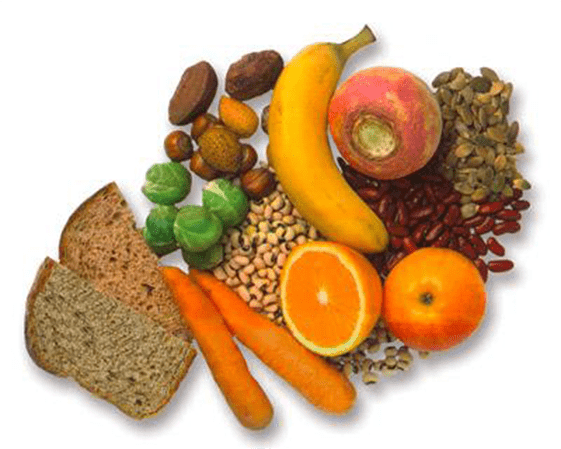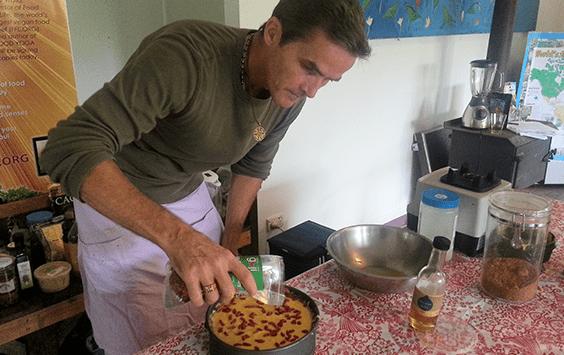Food Yoga
roots in india
Food as a Medium of Love
“He who loves with purity considers not the gift of the lover, but the love of the giver.”
- Thomas Kempis
EXCERPT from FOOD YOGA – Nourishing Body, Mind & Soul™ by Paul Rodney Turner
Rooted in Hindu tradition, the spiritual dimension of food yoga has meaning for people of all faiths. In Hinduism, all food is first offered to God – the very source of that food’s creation. Such offerings can be elaborate rituals conducted with great fanfare using expensive paraphernalia and food ingredients while other offerings may be humble gestures consisting of no more than fresh fruits and water. In all cases, however, it is the intention or the devotion of the aspirant that is foremost. Such offered food is considered pure, karma-free, and spiritually nourishing. Hindus call this food prasadam or the mercy of God.
Hinduism is a complex and varied belief system that accepts many gods and goddesses as emanating from a single source, Brahman, which is understood either as impersonal, formless energy, as in the Advaita tradition, or as a dual (male/female) god in the form of Lakshmi-Vishnu, Radha-Krishna, or Shiva-Shakti, as in Dvaita traditions. To the naturalist, the Goddess is “Mother Earth.” After all, all food comes from the earth. Some currents of Neopaganism, in particular Wicca, have a concept of a single goddess and a single god who represent a united whole, glorified as the Lord and Lady (Frey and Freya, literally translated), with the Lord representing abundance and fertility and the Lady representing peace and love as well as vast powers of magic.
Whatever your belief, the fact that you are reading this book tells me that you may be open to accepting a higher power, and in your own unique way, you honor that higher presence. My goal here is not to explore the entire subject of foodism but rather to focus on its more divine aspects, beginning with an acceptance of a benevolent presence in our lives and evolving to appreciating that presence through the offering of pure food, much the same as when you honor a friend in your home. Giving food is the most fundamental act of kindness a human can do, and eating food is one of the few things all humans have in common. Food yoga springs from the belief that the kind of food we eat affects our consciousness and subsequent behaviors.

According to the Bhagavad-gita, sattvic foods can be energetically purified by being offered in devotion, thereby raising one’s consciousness. For this reason, food yogis avoid foods saturated with fear and suffering, such as meat, fish, eggs and commercial dairy products, in favor of plant-based meals prepared with loving intention and made with fresh, organic ingredients. Moreover, if people prepare the food you eat with a polluted consciousness (e.g., disgruntled employees working in a dirty restaurant kitchen), you are sure to absorb negative psychic energies.
That food should be prepared and served in its purest possible form is central to the belief and practice of Food Yoga International, formerly known as Food for Life Global, a worldwide network of plant-based relief projects. Without adherence to this single principle, Food Yoga International would be no different than any other food relief agency. In fact, the non-profit sees itself more as a social change organization, with pure food as its preferred medium of expression.
At the root of all purity is an adherence to honesty and cleanliness, and both of these attributes can easily be applied.

When you look beyond the immediate gratification food offers and see food for what it truly is – energy – you tap into one of the greatest wonders of life and open the door to higher awareness.
All the world’s great spiritual traditions have elaborate food offering rituals carefully designed to expand consciousness. From the Holy Eucharist to Passover to Diwali, Christmas, Thanksgiving, and even the mushroom ceremonies of the Shamanic traditions – all use food as a means to represent or please the Divine and to expand the consciousness of their followers.

learn about food yoga
Food yoga is both an art form and a science
ART
An individual’s creative expression of love and devotion uses food as the medium. This can be how the food is prepared and how the meal is presented.
SCIENCE
An appreciation for the beauty and interconnectedness of all things, coupled with an unceasing awareness of the Energetic Source from which all things emanate. A food yogi considers the physical laws of good food combining as well as the more subtle laws of intention while preparing the meal.
DOWNLOAD the free Introduction to FOOD YOGA Introduction (Brochure) PDF
Register now for the Food Yoga Academy.

Visit the FOOD YOGA website

Food Yoga Standard
Since I released my book, FOOD YOGA – Nourishing Body, Mind & Soul I have seen that other people are using the term food yogi or food yoga to promote their healthy lifestyle or cooking courses. However, there is a standard for what constitutes a food yogi. As a long time practitioner of bhakti yoga (40 years), director of the world’s largest vegan food relief and author of FOOD YOGA – Nourishing Body, Mind & Soul I carry the responsibility for the definition of food yoga and a food yogi. I want to make that clear here.
What Food Yoga is
Food Yoga is a completely new approach to holistic living. Until now, philosophies on healthy living and nutrition have focused on the mechanics of health and happiness, exclusively focusing on the body alone. In doing so, these philosophies have promoted practices and diets that in one way or another have alienated vast numbers of people.
As a result, despite volumes of literature and research, there is no consensus on what diet or mode of living is best. What they have all failed to identify that we aren’t just made up of a body; we are body, mind, and spirit. Any healthy living program, therefore, needs to address the “nutritional” needs of the body, mind, and spirit. This is what Food Yoga proposes to do.
The Food Yoga Standard is what all bonafide Food Yoga affiliates follow.
What a Food Yogi Is
A responsible human that serves, eats and behaves in ways that respect all of the creation and help maintain the delicate balance of nature. A person that is respectful of their own body, which they treat as a blessing. A person who lives their entire life in full awareness of their interdependence and interconnectedness of all things.
A person who fully embraces a socially responsible and environmentally respectful lifestyle, including their choice of food, clothing, cosmetics, cleaning materials and habitat. All are chosen carefully so that the least amount of harm is inflicted upon the environment and other living things.

A person that adheres to the principle of ahimsa (non-violence) in words, deeds and thoughts.
A Food Yogi Only Uses
Fresh fruits, vegetables, beans, pulses, nuts, seeds and grains and foods considered to be pure in preparing meals.
As much local and organically-grown produce as available.
A Food Yogi Does Not Use
- Meat, fish, or eggs.
- Onion or garlic.
- Any products that contain animal-derived ingredients.
- Any products that were tested on animals.
Food Yoga Playlist

GET FOOD YOGA
Nourishing Body,
Mind & Soul
Click To Purchase Print Edition
Or Purchase (Kindle EDITION) only $2.99 (English)
*Prices above are in USD*
Download Free PDF Brochure to Food Yoga Introduction
You can also visit the FOOD YOGA website
